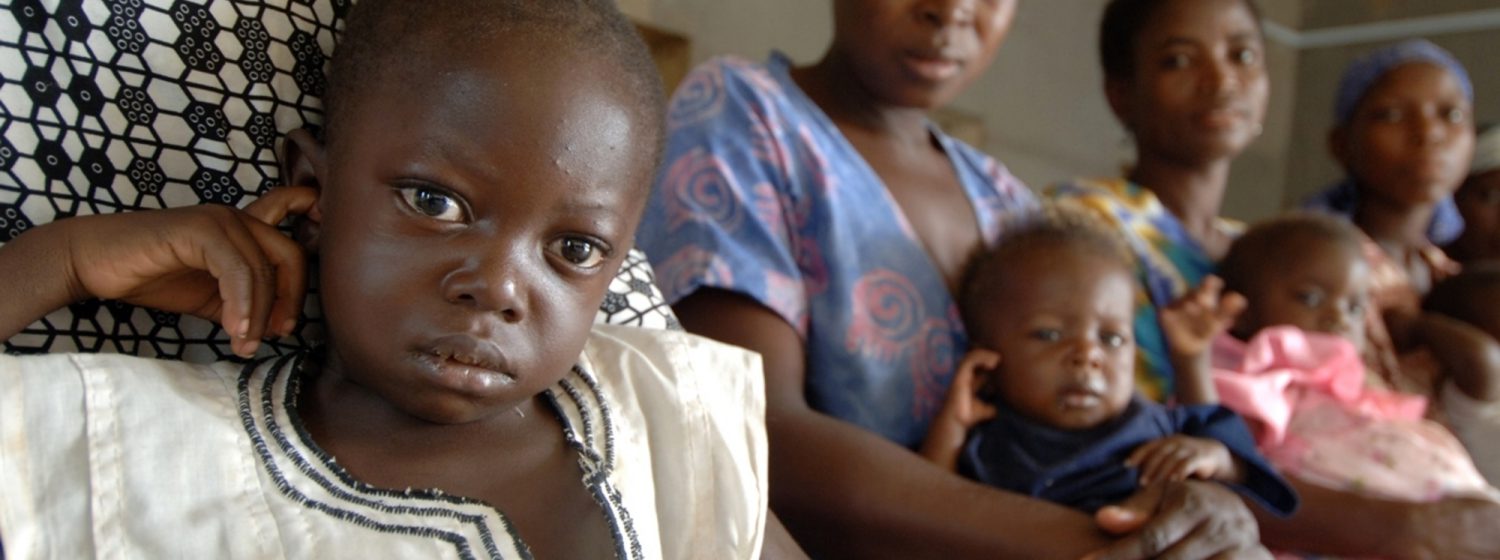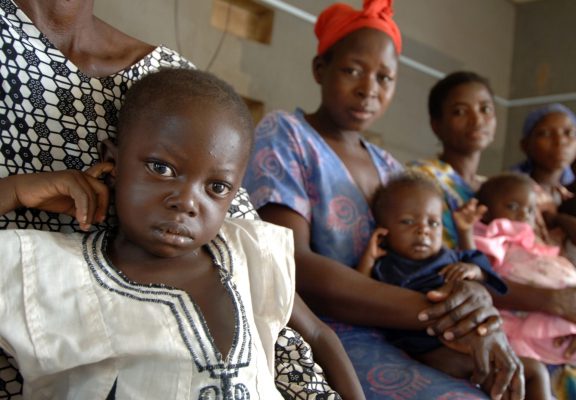


Angola
Angola is a country in Southern Africa. It is a member of Southern Africa Development Community (SADC). It is the seventh largest country in Africa. It has a population of 21 million people (2013). It has a GPD per capita of USD 5,783 (2013) and GDP of USD 124.2 billion (2013).
Angola is an upper-middle-income country. The country’s health budget is largely financed by domestic resources. Even then, to respond to HIV, tuberculosis and malaria, Angola still needs international support. The Global Fund partnership supports a part of the country’s HIV treatment program. It also supports pregnant women in prevention of mother-to-child transmission. The Global Fund’s investments in TB in the country supports interventions such as improving diagnostic, including the roll-out of GeneXpert machines for testing of TB, and improving adherence to directly observed treatment, short-course (DOTS). The Global Fund’s investments in the country also focus on key populations disproportionately affected by diseases. Malaria programs benefit from external financing, with the Global Fund contributing to provision of universal access to malaria prevention and treatment. The disease remains a major public health problem and causes about 7 percent of deaths in the country.
AHO PRIORITIES FOR HEALTH DELIVERY PLAN IN ANGOLA
- Administration and management of the AHO in Angola, within the framework of the AHO mission and the country’s technical cooperation priorities.
- Universal access to high-quality health services.
- Development of a surveillance system for life expectancy, morbidity, and mortality, and interventions in health promotion and disease prevention.
- Adequate development of sectoral process for the planning, organization, and management of human resources.
- Improvement of health and environmental management capacity.

This image shows a child receiving treatment for malaria.
PROGRAMMES & PROJECTS
1. REGULATION, COORDINATION, AND MANAGEMENT OF THE PROJECTS
PURPOSE
To manage the technical cooperation and projects outlined to address the principal public health problems of Angola.
EXPECTED RESULTS
- Political and technical management of the cooperative programme has contributed to sustainable national and international processes for progress in public health.
- Efficient and timely response to all administrative requirements necessary for the technical cooperation process.
- Strengthened in its steering role and its ability to address national technical cooperation priorities and respond to them.
2. STRENGTHENING THE PLANNING, ORGANIZATION AND MANAGEMENT OF HUMAN RESOURCES
PURPOSE
To strengthen the capacity of the health system in the development of essential functions linked to the planning, organisation, training, and management of human resources in Angola.
EXPECTED RESULTS
- Human resources policies executed according to the management and decentralisation requirements of the health services.
- Strategic development plan established to educate and train human resources for the analysis, organisation, and management of public health.
- Human resources planning, organisation and evaluation processes established in the main institutions of the sector.
- Public health research based on the requirements of the new service-delivery models.
3. DEVELOPMENT OF HEALTH SYSTEMS AND SERVICES
PURPOSE
To reduce exclusion in public health, facilitating access to quality services and increasing social benefits in health.
EXPECTED RESULTS
- Legal and regulatory framework established that facilitates the regulatory and control function of the health system.
- Social security health model defined; proposals developed that allow for more health-related social benefits, primarily for excluded population groups.
- Management models defined and instruments applied that improve the operation of the services network, decision-making processes, budget preparation, and resource allocation.
4. SURVEILLANCE, PREVENTION AND CONTROL OF PRIORITY PROBLEMS IN PUBLIC HEALTH AND DEVELOPMENT OF PUBLIC HEALTH POTENTIAL
PURPOSE
To strengthen national capacity for surveillance, prevention and control of the priority problems in public health, with emphasis on vulnerable groups and the development of public health potential.
EXPECTED RESULTS
- Development, updating and follow-up of public and institutional policies, plans, and legislation in response to priority problems.
- Coordination between programs facilitated and programs functionally integrated into the health services network; strategic partnerships forged with other actors for the production of health and the control of priority problems.
- Collaboration with the process of institution-building at all levels in the organisation and other institutions.
- Country able to monitor priority health problems and to adopt the pertinent policies.
- Health worker competencies strengthened in planning, program and project management, epidemiology, promotion, and research at all levels.
- National competencies strengthened along with the capacity to address priority health problems and take advantage of the development potential in border areas.
5. ENVIRONMENTAL HEALTH
PURPOSE
To increase national and local capacity for the identification, prevention, and control of the environmental risk factors that affect health.
EXPECTED RESULTS
- Plans, policies, and the legal framework strengthened to improve the quality of the environment and services.
- Strengthening of environmental health surveillance, covering water, soil and air, as well as the use of hazardous chemical substances and housing quality.
- National and local capacity strengthened for the management of environmental issues and the operation and maintenance of systems and services.
- National strategies for community mobilization, primary environmental care, institutional networks, and inter-sectoral coordination strengthened.
RESOURCES (USD)
AHO ANGOLA BUDGET 2020 (USD million) based on 2017 pop 29.78 million World Bank*
| SO | BUDGET ITEM | AMOUNT* |
| 1 | Combating communicable diseases |
500 |
| 2 | Tackling non communicable diseases |
518 |
| 3 | Addressing determinants of health & risk factors |
490 |
| 4 | Modernising health system and health service |
490 |
| 5 | Improving preparedness, surveillance and response |
490 |
| 6 | Developing good governance & corporate services |
490 |
| Total |
2,978 |
AHO estimates that it needs to spend at least USD100 per capita on health to meet the basic health needs of the people in Africa. This is too far below developed countries e.g. in England it is US$1,300 per capita (2018)

